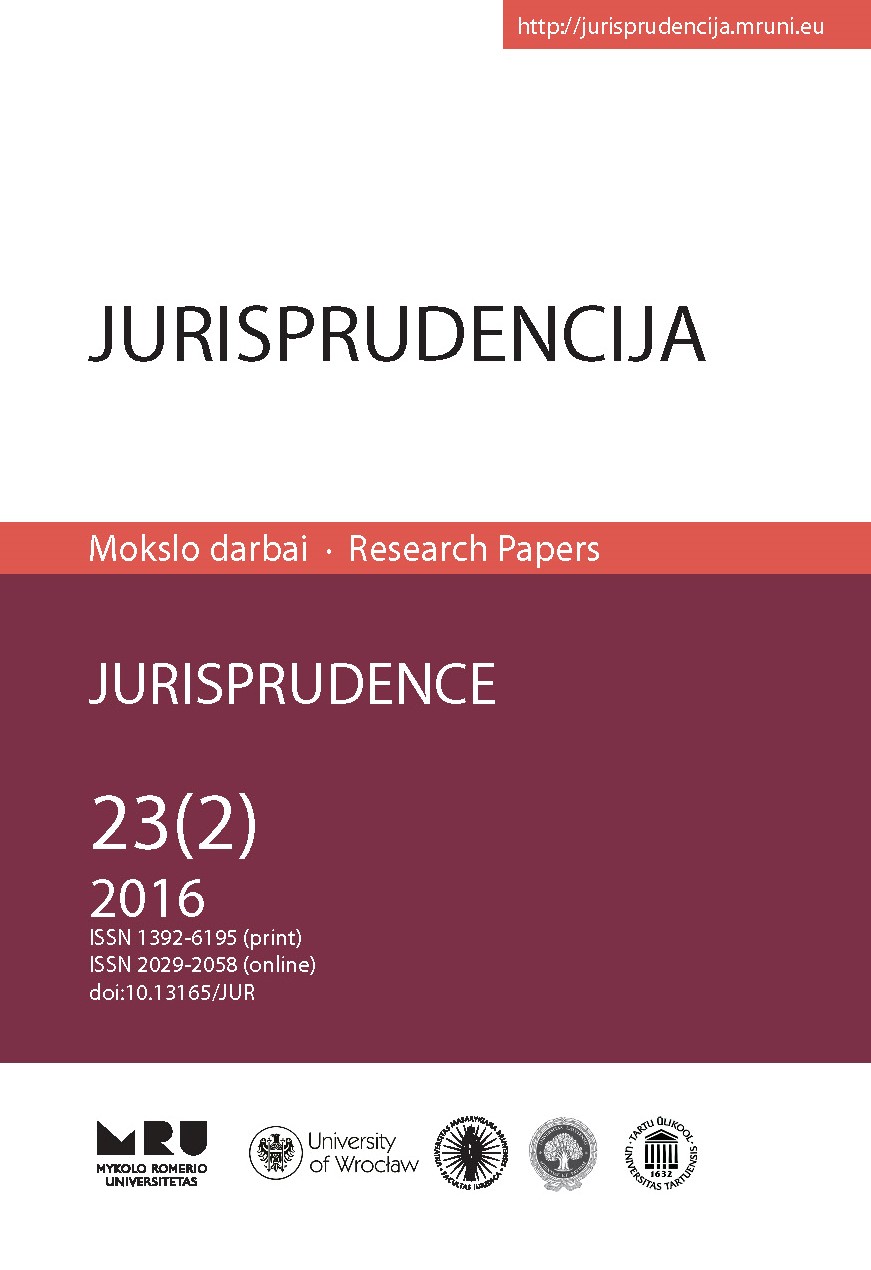ATSAKOMYBĖ UŽ NETEISĖTĄ PRATURTĖJIMĄ: REGULIAVIMO TIKSLAI IR KRIMINALIZAVIMO PROBLEMOS
RESPONSIBILITY FOR ILLEGAL ENRICHMENT: REGULATORY OBJECTIVES AND THE PROBLEM OF CRIMINALISATION
Author(s): Romualdas DrakšasSubject(s): Criminal Law, Criminology
Published by: Mykolas Romeris University
Keywords: principle of criminal liability; criminalization of offenses; illicit enrichment;
Summary/Abstract: The author examines the provisions of one of the most currently debated articles of the Criminal Code, Article 1891, by assessing them from the perspective of validity and legal thinking. After the research is presented, the reader is offered several conclusions. The process of criminalisation of the offence cited in Article 1891 of the Criminal Code was based on the emotional opinion of the holder of legislative initiative and on a superficial review of international and European Union legislation instead of a deep analysis of the situation, which would allow the legislator to ascertain the prevalence of undesirable social phenomena and factors that determine their existence; whether a social problem could be solved without criminalisation, through the help of administrative, labour or tax law; whether criminalisation of the new offence would do more damage than having a positive impact; the cost of criminalisation; and how a new criminal offence would fit in with the other articles of the Criminal Code and national legislation. Assessing the current version of Article 1891 of the Criminal Code, it follows that it presupposes the possibility (by violating the principles “nulla poena sine lege” and “nullum crimen sine culpa”) of criminal prosecution and conviction for lawfully acquired property if the acquisition is not justified. The mere chance that the person could not legally purchase property can be the basis for resolving the issue of personal criminal liability under Article 1891 of the Criminal Code. In this article, the legislator de facto established the law retroactive, which means that if a person acquired certain assets before Article 1891 was adopted and entered into force, when illegal enrichment was not considered a crime and criminal responsibility for it had not been applied, the person now has no possibility of legalising the previously acquired property and thus avoiding unjustified criminal prosecution. The legislator should pay attention to the fact that the principles of criminal liability are not “decorations” of the law or insignificant slogans and declarations, but independent and the most common norms of criminal law, with legal force and significance. They are an essential reference to court practice forming entire law application strategy.
Journal: Jurisprudencija
- Issue Year: 23/2016
- Issue No: 2
- Page Range: 210-233
- Page Count: 24
- Language: Lithuanian

